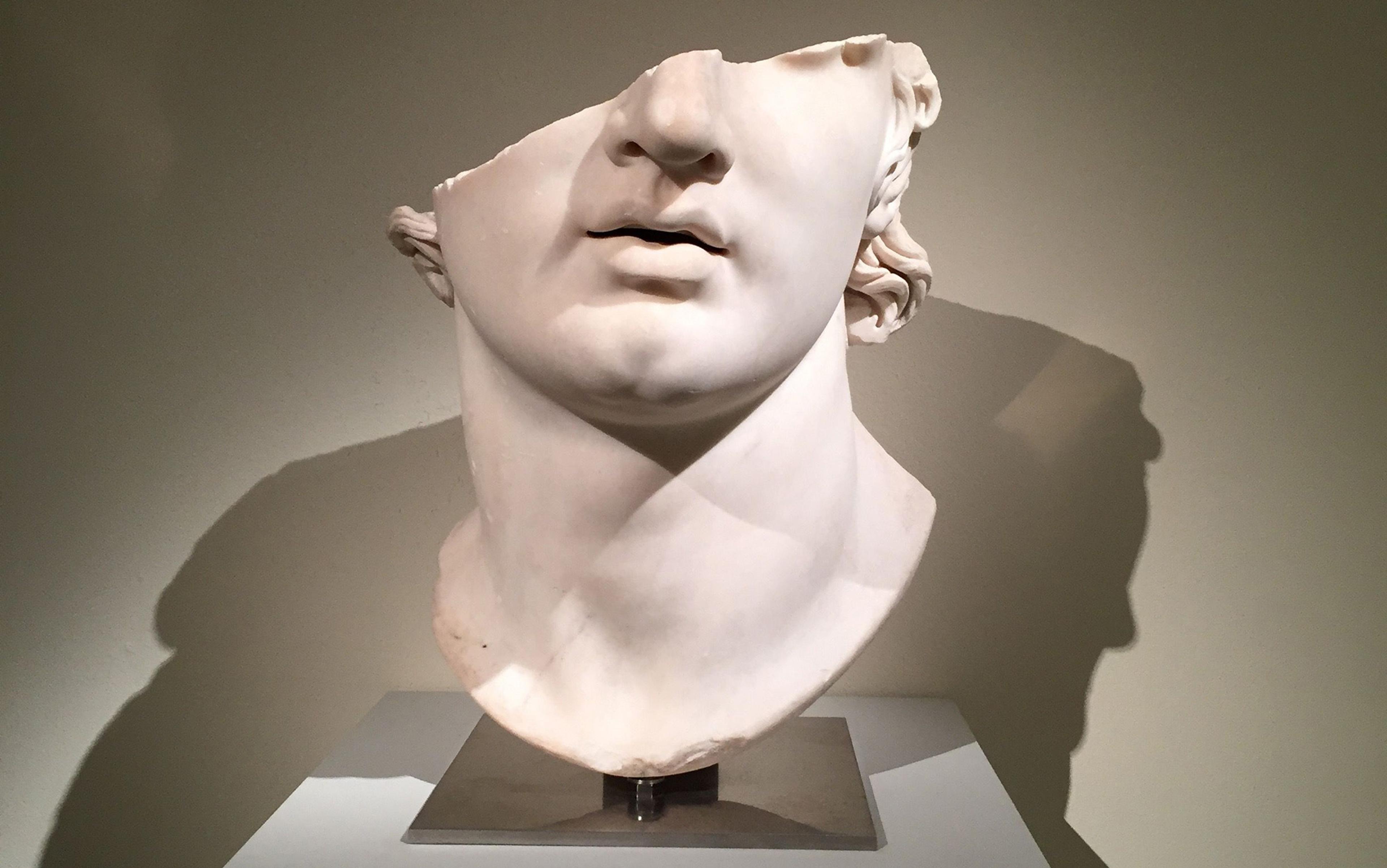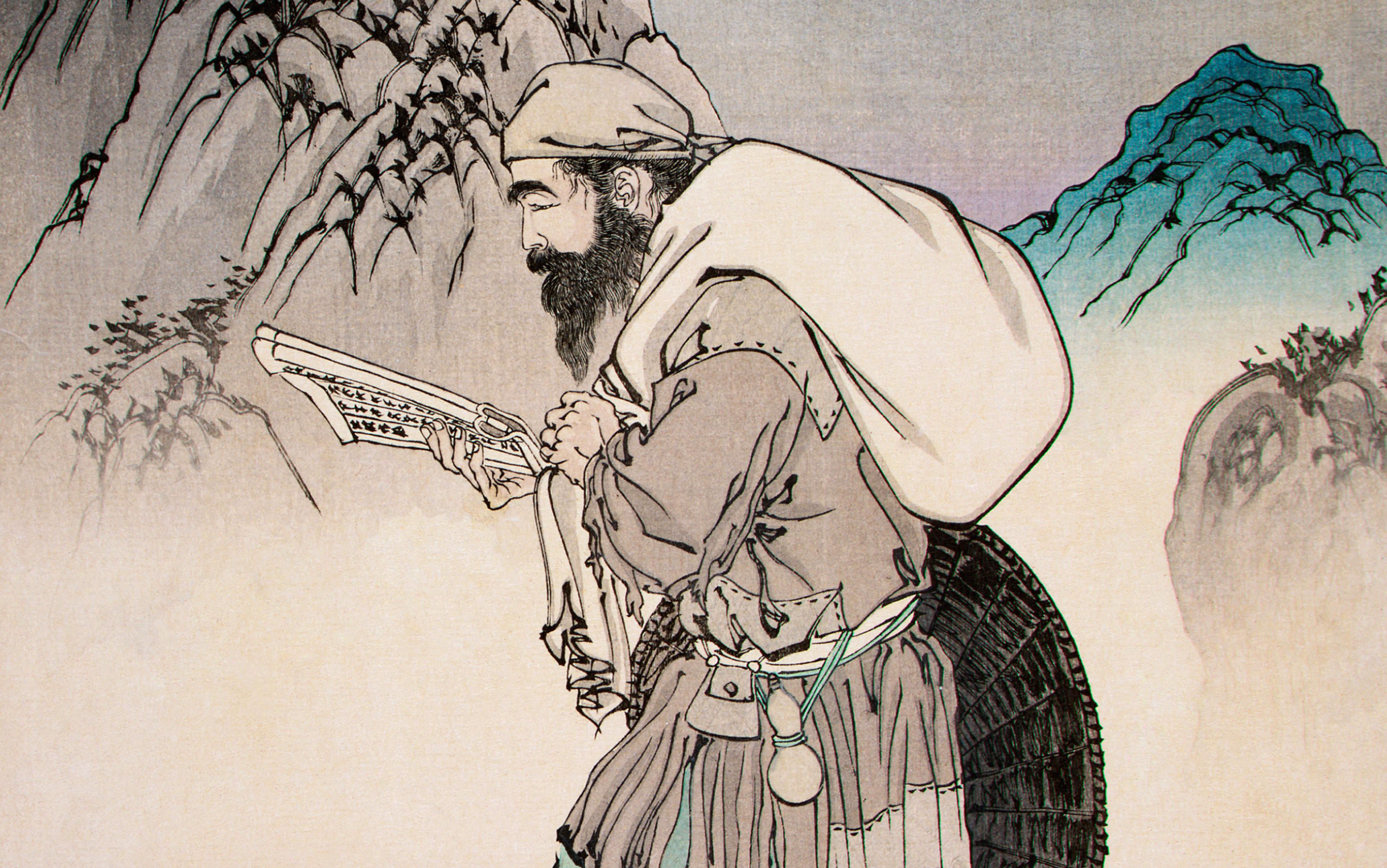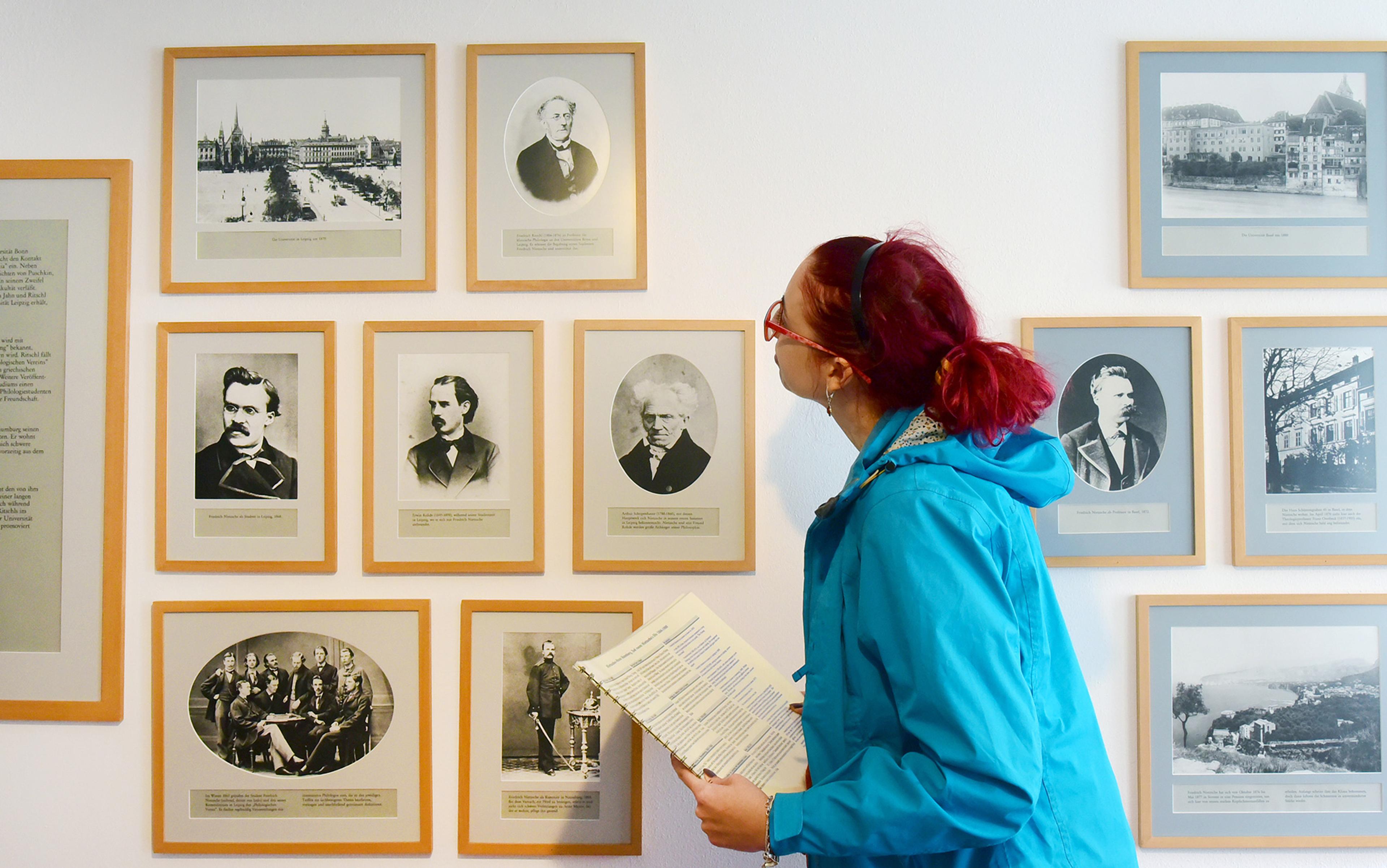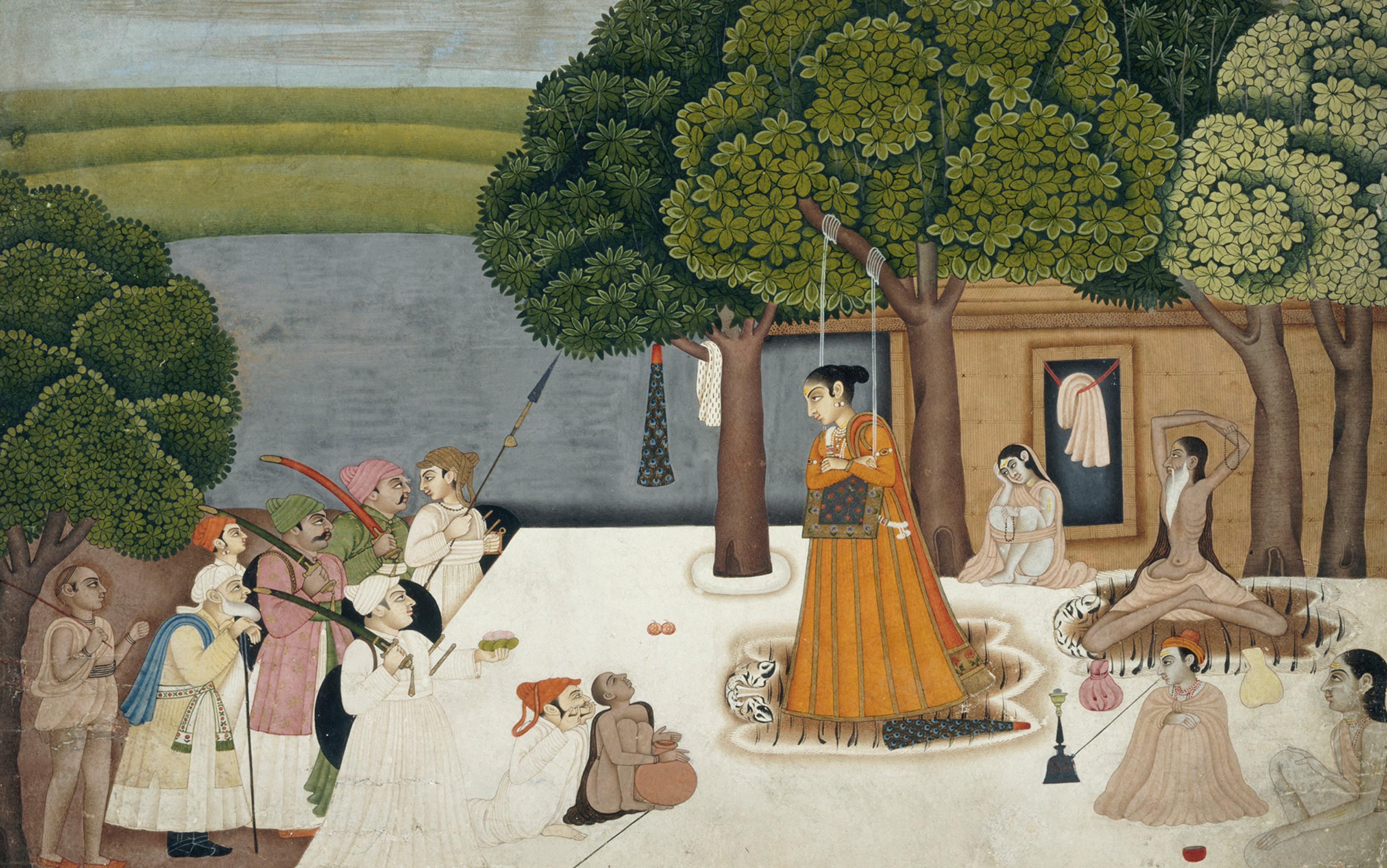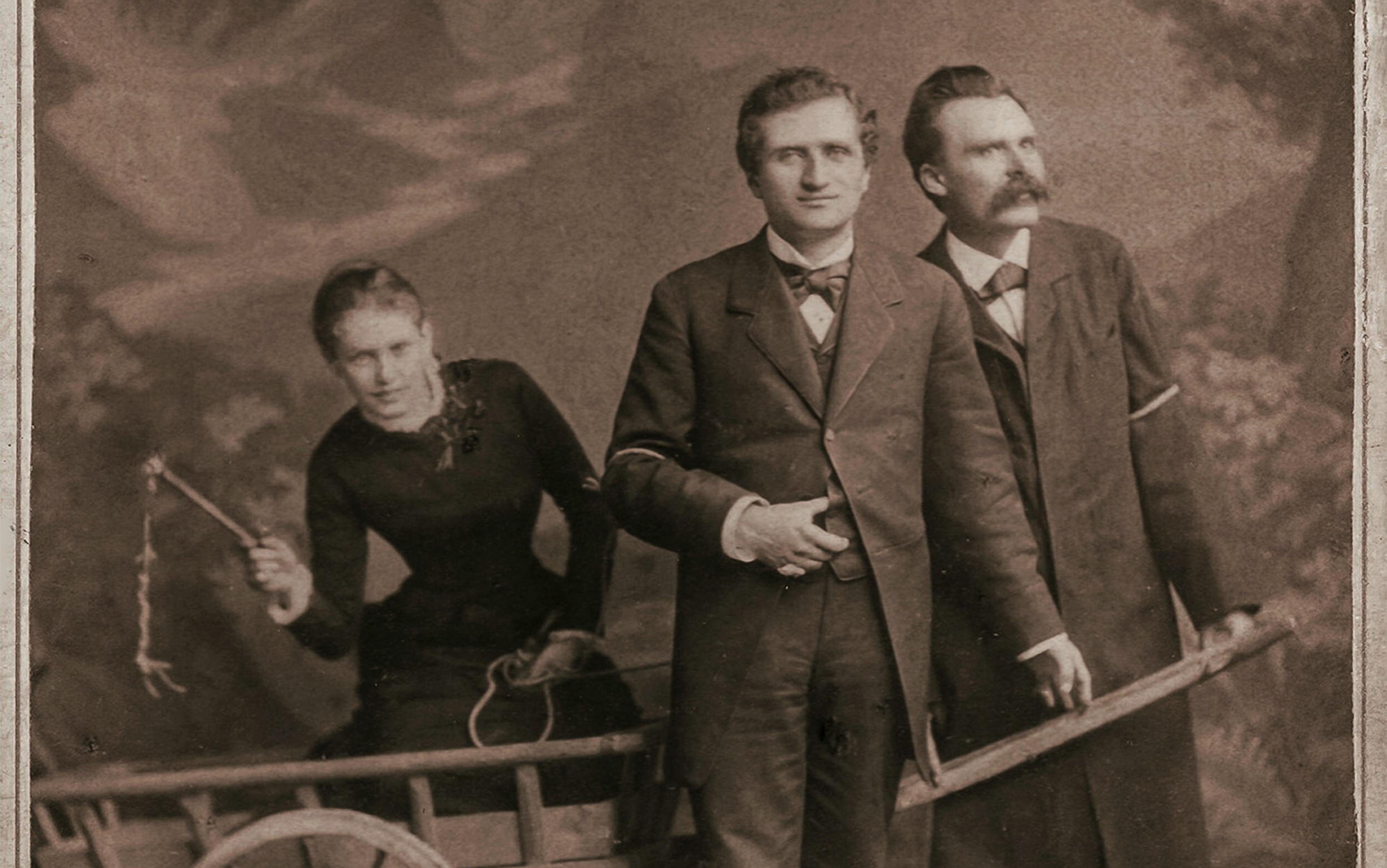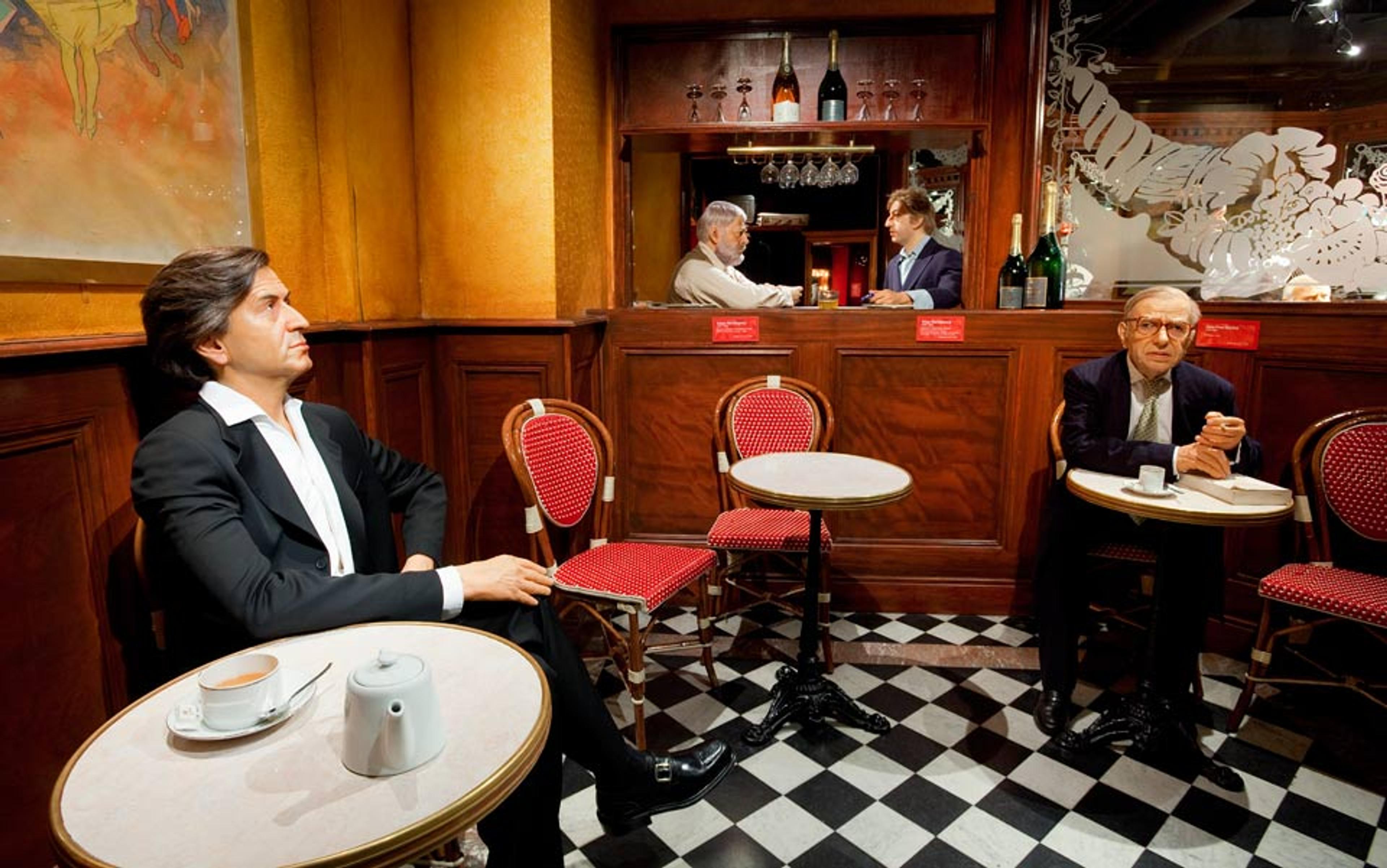Philosophy undergraduates typically learn the history of their subject through two core classes: ‘ancient philosophy’ and ‘modern philosophy’. The tale begins in the Athenian city-state with Socrates (c470-399 BCE), philosophy’s veritable mascot – an endearing curmudgeon, a speaker of truth to power, and a martyr executed by a jury of his peers only for loving (philo-) wisdom (sophia). Despite the fact that Greek records from this time document the region’s intellectual indebtedness to Egypt and the wider Mediterranean world, philosophers today conventionally consider Socrates the founder of their discipline. He is distinctive, so we say, because he valiantly promoted independent critical thinking in the face of accepted norms and unexamined premises. We cherish his audacity and want to convey these philosophical values to our students. Accordingly, professors tend to build the ‘ancient philosophy’ class around Socrates, his student Plato (c429-347 BCE), and Plato’s student Aristotle (384-322 BCE).
Medieval philosophy is usually skipped. Although the common portrayal of it as a regressive age in which independent thinking gives way to religious dogma is an over-simplification, medieval thought is still considered a topic for specialists. The story of philosophy picks up again in the modern period with René Descartes (1596-1650), whose doubt over whether he can be certain of anything he had been taught to believe still resonates with students. Following that, a typical course in modern thought concludes with Immanuel Kant (1724-1804) and his self-described ‘revolution’ that, as he saw it, set philosophy on a path friendly to empirical research and resistant to far-fetched metaphysical speculation. The following period – contemporary philosophy – finds professionals split along the so-called analytic/continental divide. However, the narrative of progress from the ancient to the modern periods is a story that every pupil can tell. Regardless of their place of study, philosophy students all over the globe are made to share in the heritage of Socrates, Descartes and Kant.
But this story of philosophy’s history itself has a history. Why have certain figures been canonised and not others? Is this the most accurate version of events? Or are there other factors explaining why this story from Socrates to Kant has become ubiquitous? The historiographical methodology that generates this narrative is a vestige of earlier times. The claims regarding philosophy’s unique Athenian origins have not stood up to scrutiny by present-day historians. Peter K J Park’s decisive research in Africa, Asia, and the History of Philosophy: Racism in the Formation of the Philosophical Canon, 1780-1830 (2014) finds that assertions of Greek uniqueness surface in the late 1700s, around the same time that a newly minted pseudoscience of race in Europe first allows the Greeks to be called ‘white’. Such race-based thinking was linked to evolutionary theories of world-historical development promoted by a handful of scholars who, though few in number, included the enormously influential Kant and, later, G W F Hegel (1770-1831). Both incorporated a race-based evolutionary model into their work on philosophical historiography, promoting the idea that philosophy is the special province of the white race due to its supposedly inherent biological traits.
There were many other approaches to writing the history of philosophy. Park reviews more than 20 philosophical historiographies written between the 1500s and 1700s, which posit any number of early philosophers in any number of locations around the globe, including Egypt, India, China and others. Yet these philosophical narratives did not win the day. Over time, the story based on what Park calls ‘raciology’ is the one that takes root and continues to thrive, undergirding the conventional range of content taught in our familiar curricular requirements for ‘ancient’ and ‘modern’.
What accounts for the popularity of this narrative over the more diverse historiographies that populated philosophy’s past? Undoubtedly, narratives that aligned with Europe’s colonial and imperial aims during the 1800s and 1900s were politically expedient and hence gained traction. But that’s not the only reason. Also at stake here is philosophy’s turn to model itself upon the sciences, which grew to be the dominant paradigm during this same time period.
As a ‘science’, philosophy recoiled not only from metaphysical speculation but from those ‘spiritual exercises’ once foundational to the Greek practice of philosophy as a ‘way of life’ aimed at self-formation and transformation. Methodologically speaking, philosophy grew to value what Thomas Nagel in 1989 called the ‘view from nowhere’, that is, the detached perspective of a decontextualised and disembodied observer. Although a capacity for critical distance has its utility, the outsized emphasis on abstraction over contextualisation left philosophy ill-equipped to consider the historical and cultural embeddedness of its own endeavours.
Today, the view from, and out of, nowhere is common fare among philosophers when they seek to develop knockout, universal arguments. Curiously, though, they do not probe into the origins of the view from nowhere. As a result, they fail to see that its claims to objectivity are rooted in unexamined biases. This view began in modern Europe in a world dominated by colonial and imperial practices, where European philosophers thought that they alone could take up a standpoint that was removed from events unfolding on the ground. They alone could pursue philosophy as a science, and not a way of life.
This begets a wilful ignorance of world philosophies that is built into the model of what it means to practise academic philosophy
Against the backdrop of philosophy’s history, it is difficult to ignore the racialised narrative that lurks beneath the ‘view from nowhere’. As the late Charles W Mills illustrated in The Racial Contract (2014), this narrative reflects the ‘white ignorance’ that informs academic philosophy till today. As Mills and others have shown, the assumed neutrality of philosophy serves to disguise not only its cultural embeddedness but its cultural chauvinism as well. The methodologies that privilege deliberations about the ideal world, or a world of theory unmoored from actual events, on the part of practitioners who have tended to posit themselves as disincarnate thinkers, ultimately undermines philosophy’s own commitments to analytical clarity.
Fashioned around western Europe’s self-positioning as the veritable centre of the world, such a decontextualised narrative renders borrowings from other parts of the world invisible. Globally, this begets a wilful ignorance of world philosophies that is built into the model of what it means to practise academic philosophy today. As the late Kwasi Wiredu said in 1998, a ‘philosophical neocolonialism’ results. Concepts such as ‘man’, ‘civilisation’, ‘human progress’, ‘freedom’ and the like have been intricately tied up with European imperial expansion and colonialism, though the political context is rendered obscure through philosophy’s avowed practice of abstraction. In short, these concepts were developed through an othering of non-European peoples that went hand in hand with the self-positioning of the white, propertied, male, European, philosophical self, disguised as a neutral observer, at the apex of human reason.
When such concepts are applied to contexts outside of Europe and North America today, they continue to carry their exclusionary history with them. They continue to project Europe or the imagined ‘West’ as the sole repository of human reason, while marking out the contexts to which they are exported as lacking progress, freedom, civilisation and so on. Concepts are not neutral carriers of meaning. The view from nowhere, it turns out, is rooted somewhere.
The situation is changing, albeit gradually. Increasing numbers of scholars worldwide have begun to resist the self-presentation of mainstream philosophy and to engage, as Vrinda Dalmiya says in Caring to Know (2016), with ‘the messy issues of unjust privileges’ playing out in the academy. Some departments are already undertaking first attempts at changing their hiring practices to develop a widely diverse curriculum. At least some of them seem to be committed to accomplishing structural changes such that scholars co-trained in non-Eurocentric historiographies, methodologies and subfields can be recognised as philosophers. But what is the nature and extent of the structural changes required?
Several suggestions are already on the table. According to one hotly debated proposal from Jay Garfield and Bryan Van Norden, philosophy departments should be renamed to reflect the actual activities conducted there. That is, when departments focus solely on European and North American content, they should call themselves ‘Departments of European and American Philosophy’. Some scholars have also proposed to diversify philosophy via a gradual integration of world philosophies into the extant philosophical canon or other means of including diverse content within courses and requirements already part of the curriculum.
We consider these various calls for change against the backdrop of our collaborative work in what we as series editors call a ‘world-philosophies approach’. From this perspective, the integration of world philosophical traditions into the current academic setup will not work when these philosophies are docked into the prevailing philosophical paradigm. We cannot simply increase the buffet table of ‘diverse’ areas within our discipline, as if all such areas are equally situated. Rather, philosophers must critically and intentionally make use of terms that are vying for power within a contested space of neocolonial academic practices. Without switching from one dominant discourse to another (Eurocentrism versus Sinocentrism, for example), philosophers should be savvy regarding the realities of ongoing power differences in academia. They must be strategic with their curricular choices in ways that make sustained interventions in hegemonic practices.
The narratives of history are messy, overlapping, and interconnected. No department can do it all
How can one, for example, integrate world philosophical traditions into ‘ancient’, ‘medieval’ and ‘modern’ periods, without being embroiled in unexamined assumptions about hierarchies in cultural development rooted in the race-based thinking of the 1700s? We personally find it difficult to explain to students that modernity began in Europe as early as the 1500s but did not begin in China until 1912, which is indeed a common historiographical parsing. Whose measuring sticks are we using to justify this way of writing history? Is there not an implied claim that one culture advanced more rapidly than the other?
Consider that historians in China, for example, applied their own measures to chart world history. Extant historical writing dates back at least to the Chunqiu (春秋, 722-481 BCE) – the classic chronicle of the state of Lu – and companion commentaries such as the Zuozhuan (左傳). Such texts had assumed their current forms by the Warring States period (475-221 BCE) but contain material dating back even earlier. Editorship of the Chunqiu is attributed to Kongzi (孔子) or ‘Confucius’ himself (551-479 BCE) – ie, possibly predating the work of the Greek ‘father of history’ Herodotus (484-425 BCE). Other early prominent scholars include the ‘grand historians’ or court scribes (taishi, 太史) Sima Tan (司馬談, 165-110 BCE) and his son Sima Qian (司馬遷, 145-86 BCE).
The ‘view from nowhere’ simply does not exist. The narratives of history are messy, overlapping, and interconnected. We submit that no department can do it all, at least at this point in time. Hiring an array of specialists in different world philosophies may be financially impossible, and meaningfully integrating diverse traditions into the existing curriculum is beset with the many issues and dilemmas already outlined.
However, at a minimum, philosophers can and should begin to teach the content of the existing curriculum in such a way as to avoid the impression that race-based historiographies and Eurocentric methods are definitive for the discipline. This is a realistic goal. In other words, one route toward ‘diversifying philosophy’ is, to borrow a phrase from the historian Dipesh Chakrabarty, ‘provincialising Europe’. Toward that end, we suggest a plausible move for most departments: revise the history series in ‘ancient philosophy’ and ‘modern philosophy’ to reflect historical context as well as practices on the ground today. Consider these nomenclatures and teach them in ways that reflect specific contexts in the Mediterranean world and during Europe’s imperial and colonial period. To do so, philosophers must use appropriate terminology and adjust the content of the history of philosophy courses accordingly.
Socrates’s home in the Athenian city-state was deeply embedded within a network of trade and cultural exchange that crisscrossed the Mediterranean world from northern Africa to present-day Turkey and across the numerous polities of present-day Greece and Italy. Simply adjusting our speech to refer to the Athenians in the context of the Mediterranean would go a long way toward informing students of the rich, fascinating and historically accurate cultural diversity of the ‘ancient Greeks’. Adjusting the content of the course itself should not pose a problem, since many of us enlisted to teach ‘ancient philosophy’ for undergraduates are not specialists anyway – that is, we do not read Ancient Greek, and we do not publish on Socrates, Plato or Aristotle, and hence we must do a certain amount of prep work to cover the class. It seems reasonable to expect we might do a moderate amount of additional research and bring in Thales of Miletus (present-day Turkey, c7th to 6th century BCE), or the Egyptian Irsesh (c12th century BCE), or even Hypatia (c350-415 CE), a later female Neoplatonist based in Egypt under Roman rule (and, like Socrates, a martyr). This would serve to give students a more complex picture of Socrates and Plato’s cultural context, intellectual heritage and lasting influence.
As for the course in ‘modern philosophy’, speech habits should make clear to students that there was a close relation between the so-called Enlightenment and Europe’s imperial and colonial reign, just as it should make clear that several ‘modern’ philosophers were deeply engaged in the discourses surrounding colonialism, imperialism and the slave trade. Scholars such as Charles W Mills as well as Lucius Outlaw Jr, Robert Bernasconi, Ofelia Schutte and Emmanuel Chukwudi Eze have long asked us to consider whether the political philosophies of ‘modern’ thinkers can be divorced from their known beliefs regarding the subhuman status of nonwhites. Kant argued for the innate dignity of all rational beings while holding that Africans and Indigenous Americans were biologically incapable of the so-called higher thought needed for philosophy. John Locke (1632-1704) argued that all humans have certain natural rights that must be recognised and protected by any legitimate political authority, while authoring a defence of slavery for the Carolina constitution. Our students never fail to puzzle over these seeming contradictions.
The answers to these puzzles can be found when canonical ‘modern’ philosophers and their thought are framed in the historical and political context of Europe’s imperial and colonial period. It is not as if these philosophers first conceived of enlightened political ideas such as freedom, equality, universal rights and constitutional government, and then mounted a self-contradictory defence of slavery and colonialism. Rather, their attempt to articulate the rational foundations for legitimate governmental power was intricately bound up with claims regarding the superiority of European governmental models over the presumedly despotic regimes of Africa and Asia. Their political project aimed from the start to justify the spread of European models via imperialism and colonialism. The latter were, after all, long seen as civilising forces for good in the world. When understood against this backdrop, the various pro-slavery and pro-colonial views of the aforementioned canonical modern philosophers seem less puzzling. When professors make sure that their own speech habits aid in clarifying, rather than obscuring, these issues, they invite students to join along in the pursuit of the analytical clarity the discipline so values.
The standard speech habits in our professional discipline can be made more inclusive
Ideas of freedom, equality, universal rights and constitutional governments should, of course, remain in the curriculum. Students should continue to learn about the philosophical theories behind these ideas. But the current practice of divorcing ‘modern’ philosophy from its historical and sociopolitical context must be halted. It is inaccurate, and it does a disservice to students. They are seeking to better understand the world that they’ve inherited. In response, teachers must resist the epistemology of ignorance granted by the moniker ‘modern philosophy’ and do the research needed to incorporate political history into standard models for the course. These minimal measures in core courses can better convey the self-image of a discipline that, after all, purports to foster critical skills and self-reflection.
Changes to course titles in a department’s curriculum are often unrealistic, especially with departments under such pressure to fill seats. So even if the class on ‘ancient philosophy’ is not renamed in the course catalogue, the standard speech habits in our professional discipline can be made more inclusive. The relatively simple measures proposed here will produce a history-of-philosophy curriculum that, we believe, resists racial and cultural essentialism and better reflects the historical record with all of its messy, overlapping and interconnected narratives.
In seeking to complicate the narratives of philosophy, our sustained engagement with world philosophies through the years has taught us to do difference in collaboration with like-minded colleagues. So-called European reason is often simply not applicable without modification to non-Eurocentric contexts. At other times, it yields inadequate results, even when applied to European philosophy. Instead of accepting such unsatisfactory results, we have learnt to squarely face what the philosopher Helen Verran in Contested Ecologies (2013) calls ‘epistemic disconcertment’, so as to allow ourselves to sit with uncomfortable tensions. It has helped us shake off our mental fetters and rethink standard ways of knowing. We have learnt that conceptual framing and willingness to attend to the specifics of the context are crucial in making sense of the worlds of philosophy that disclose themselves.
By resisting the conventional narratives of the discipline, philosophers will encounter rich worlds of philosophy that, for example, do not posit a mind-body dichotomy or bifurcate social relations along the human/nonhuman axis. We are sceptical that philosophers can engage this transformative content via the standard comparative lens that uses European philosophy as its default position; rather, new philosophical tools and practices will be required. Equally, we tend to be sceptical of the view that world philosophies should be studied within area studies – eg, Asian studies, Buddhist studies, and so forth. Some say that these area studies, with their sustained engagement with world regions outside Europe, can offer safe intellectual spaces that are independent of mainstream academic philosophy and its dominant narrative. But this is not a viable option, in large part because philosophy departments rarely hire from outside the discipline – meaning that the graduate of an Asian studies programme will likely never teach in a philosophy department. Rather, the wilful ignorance that sustains dominant narratives must be faced squarely within the discipline itself and terminated in a collaborative effort. The discipline has the necessary tools to take on this task.
We have both been fortunate to have had teachers on different continents who taught us that there is no reason to presume that the most convincing philosophical position can be found only within one’s own tradition. Every claim that purports to be a philosophical one must be scrutinised carefully. This includes the story the discipline tells about itself, and also the claim that diversity in philosophy can only somehow dilute philosophical reasoning. This training has proved to be invaluable in our work on European philosophy and on world philosophies. An increasing number of philosophers worldwide are, like us, not willing to buy into the contingent reasons that prop up the standard narrative about philosophy. Our collaboration with international scholars on the world-philosophical project has brought us into contact with colleagues who were also taught that the parochiality of the standard narrative of philosophy must be resisted, especially when it hinders sound philosophical reasoning. Academic philosophy can indeed make sense of our interdependent and complex world. To do so, however, its practitioners will have to carefully think through the ramifications of diversifying philosophy without dismissing it offhandedly.
Standing on the shoulders of those who have long warned about the disconnect between a Eurocentric philosophical canon and our lives in an interdependent world, the time has now come to explore new, creative and realistic ways of making academic philosophy more inclusive. It is, after all, one very important tool we use to make sense of the world we live in.
